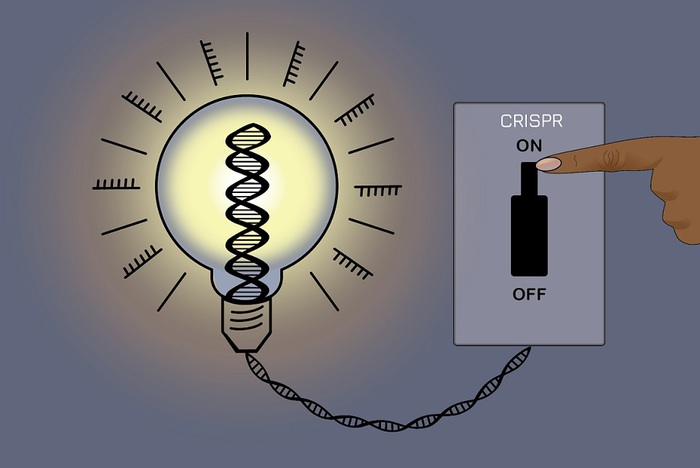After the Nobel CRISPR-Cas9 technique, which 'cuts and pastes' the DNA to modify it in an ultra-precise way, now comes the CRISPRoff, a new safer method that allows you to turn off the genes in a reversible way: this is possible because it does not alter the DNA sequence, but affixes removable 'labels' that prevent it from being read.
Published in the Cell journal by researchers from the Whitehead Institute for Biomedical Research in Cambridge (USA), CRISPRoff could be used for therapeutic purposes and in the study of epigenetics, i.e. the chemical modifications with which cells coat DNA to regulate its expression: inheritable and influenced by the environment and lifestyle, they are involved in the genesis of many diseases, including some cancers.
"We now have a simple tool that can silence most genes," says biologist Jonathan Weissman.
"We can act on several genes at the same time without damaging the DNA, with great homogeneity and in a reversible way".
A tool of genetic engineering 2.0 able to reproduce in the laboratory the natural mechanism of DNA methylation, which consists in the addition of a chemical label (called 'methyl group') to prevent certain sequences from being read.
In the case of the CRISPRoff technique, the operation is carried out by a protein machine that attacks methyl groups in specific points of the DNA.
In this way it is possible to silence genes, but not only: it is also possible to act on non-coding DNA sequences that regulate the expression of other genes.
To cancel the changes, just use enzymes (CRISPon) that detach the methyl groups from the DNA.
The CRISPRoff technique was experimented to silence a gene in induced pluripotent stem cells (i.e. reprogrammed from adult cells): the epigenetic modification was shown to be stable even after many cell divisions and was retained by 90% of the cells once transformed into neurons.
To evaluate the possible therapeutic application of CRISPRoff, the researchers used it to modify the expression of the gene of the Tau protein involved in Alzheimer's: as a result they managed to reduce its production, even if they did not turn it off completely.
It remains to be seen whether this finding could have an actual impact on the disease.
We must then devise a way to administer a similar therapy in a targeted way in the tissues of an adult individual: the researchers think that the molecular toolbox could be conveyed via DNA or Rna, using in practice the same technology underlying Moderna's anticovid vaccines. and Pfizer-Biontech.


/cloudfront-eu-central-1.images.arcpublishing.com/prisa/ZV3HRONFCNGOLA37LDSKYTU2VY.jpg)












